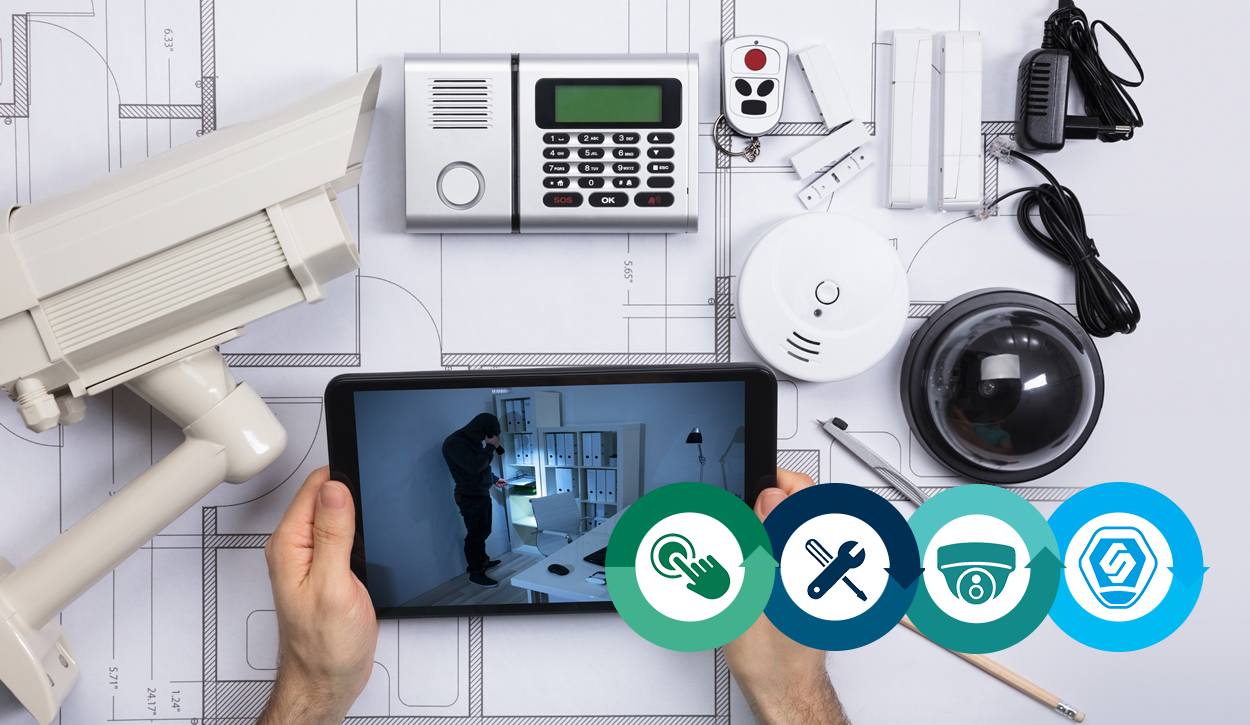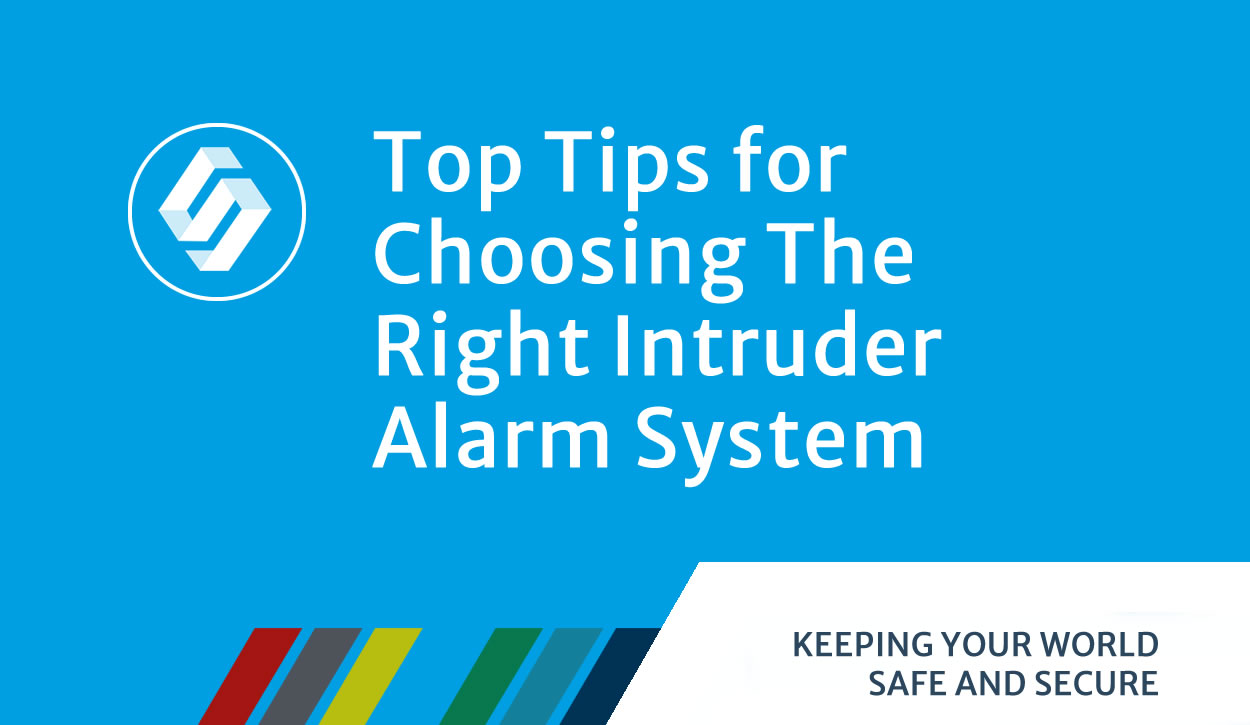Top Tips for Choosing The Right Intruder Alarm System
Intruders can cause thousands of pounds worth of damage, making it essential to invest in the right intruder alarm system. The best system for you will depend on your security needs and budget. From wireless and hardwired options to monitored or bells-only systems, there’s a wide range to choose from. It’s also worth looking for systems approved by reputable organisations such as NUD, NACOSS, or SSAIB, which regulate and certify security providers. Here’s what you need to know to make the right choice.

Why Intruder Alarms Matter
Intruder alarms are one of the most effective ways to protect your home, business premises, staff, and valuable assets from theft or damage. However, with so many types of alarm systems available, choosing the right one can be overwhelming.
Our Top Tips for Choosing the Right Alarm
1. Consider Your Budget
While it may be tempting to opt for cheaper, off-the-shelf systems available online, professional-grade alarm systems typically offer better reliability, performance, and long-term value. Many high-quality systems are more affordable than you might expect.
2. Look at the Features and Functionality
Today’s alarm systems come packed with features that go far beyond basic security. Here are a few innovations worth considering:
- Animal-Friendly Detection: Advanced sensors can tell the difference between animals and an intruder, reducing false alarms.
- Smart Integration: Many modern systems work with smart home assistants like Alexa or Google Home, allowing voice-activated control and automation.
- Mobile App Control: Manage your alarm remotely, arm, disarm and monitor activity from anywhere using your smartphone.
- Cellular Backup: Some systems include cellular connectivity, ensuring continued protection even if your Wi-Fi goes down.
Choosing the right intruder alarm can give you peace of mind and long-term protection. Take the time to assess your needs, compare options, and look for certified providers to ensure your system delivers the security you deserve. There are several types of business intruder alarms available, each designed to meet different levels of security needs. Here’s an overview of the main types:
1.Bells-Only (Audible) Alarms
- How it works: Sounds a loud siren or bell when a break-in is detected.
- Pros: Low cost, simple to install.
- Cons: No alert to authorities or owner unless someone hears the alarm and acts.
2. Monitored Alarms
- How it works: Sends an alert to a monitoring center when triggered. The center can contact the business owner or emergency services.
- Types: Keyholder Response: Notifies the nominated person (e.g., manager).
- Police Response: Monitoring center contacts the police directly.
- Pros: Fast response, better for high-value or high-risk businesses.
- Cons: Monthly fees, may require annual servicing.
3. Wireless Alarms
- How it works: Sensors communicate with the control panel via radio signals.
- Pros: Easy installation, flexible for leased or temporary premises.
- Cons: Requires battery management, can be more expensive upfront.
4. Wired Alarms
- How it works: Sensors connected by wires to a central control panel.
- Pros: Reliable and low-maintenance after installation.
- Cons: Installation is more invasive and time-consuming.
5. Smart Alarms (App-Connected)
- How it works: Integrated with mobile apps and cloud services. Owners can monitor and control the alarm remotely.
- Pros: Real-time notifications, remote access, can integrate with CCTV or access control systems.
- Cons: Dependent on internet connectivity.
6. Dual Path Alarms
- How it works: Uses two communication paths (e.g., phone line and mobile network) to ensure alerts are sent if one path fails.
- Pros: High reliability, suitable for high-security businesses.
- Cons: More expensive, often used with police-monitored systems.
7. Perimeter Alarms
- How it works: Detects intrusion before entry, e.g., fence sensors, window vibration detectors, laser beams.
- Pros: Early detection.
- Cons: Can be sensitive to false alarms (e.g., animals, weather).
8. Integrated Security Systems
- How it works: Combines intruder alarm with CCTV, access control, and fire detection into one system.
- Pros: Centralised management, holistic security.
- Cons: High cost, usually for larger businesses.
SS Systems project team have the expertise to plan, design and install both hardwired and wireless systems to suit your individual requirements in protecting your people, property, and assets. We specialise in wireless and hybrid systems, where minimal disruption to the building is important, such as heritage projects, industrial and commercial buildings. We are accredited by the SSAIB to design, install, commission and service all intruder systems. Find out more at https://sssystems.co.uk/intruder-alarms/.
#FireAlarms #FireRiskAssessment #FireSafetyEquipment #FireAlarmMaintenance #AccessControl #CCTV

